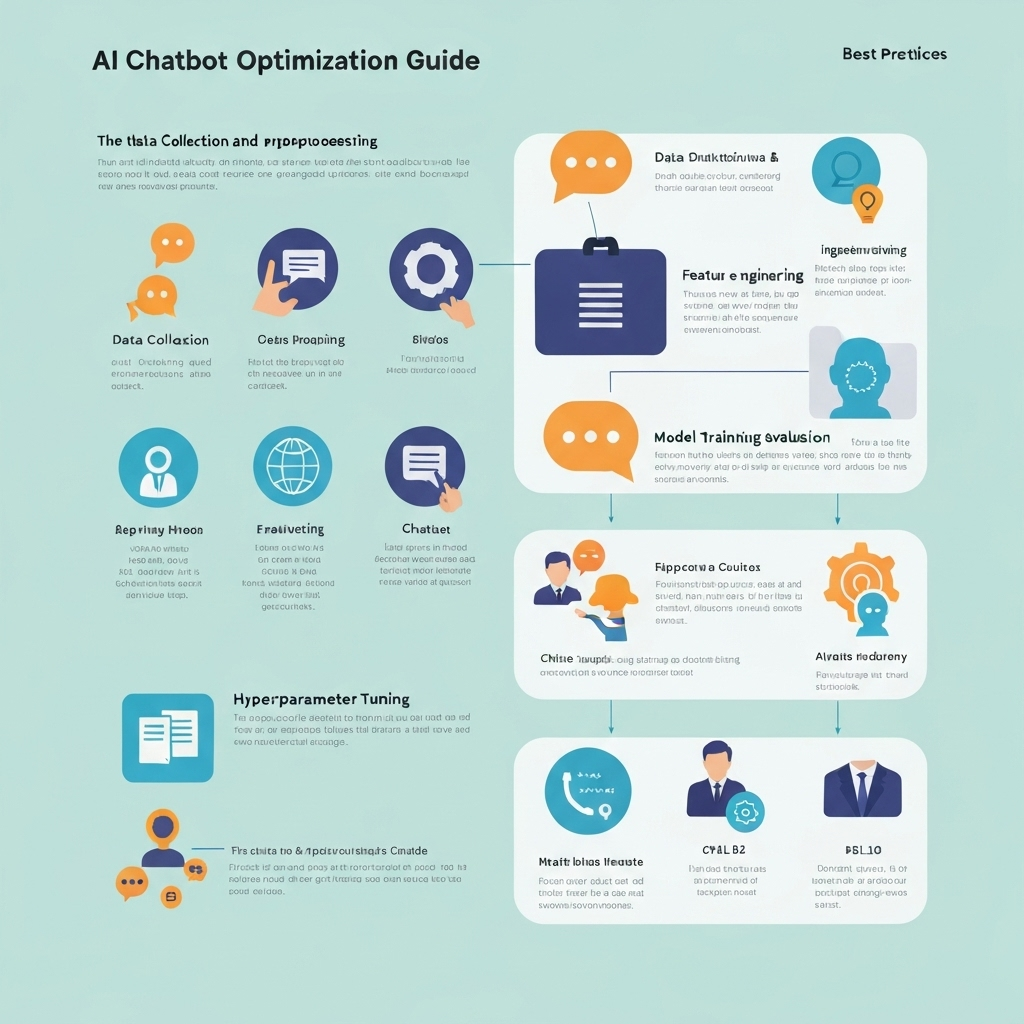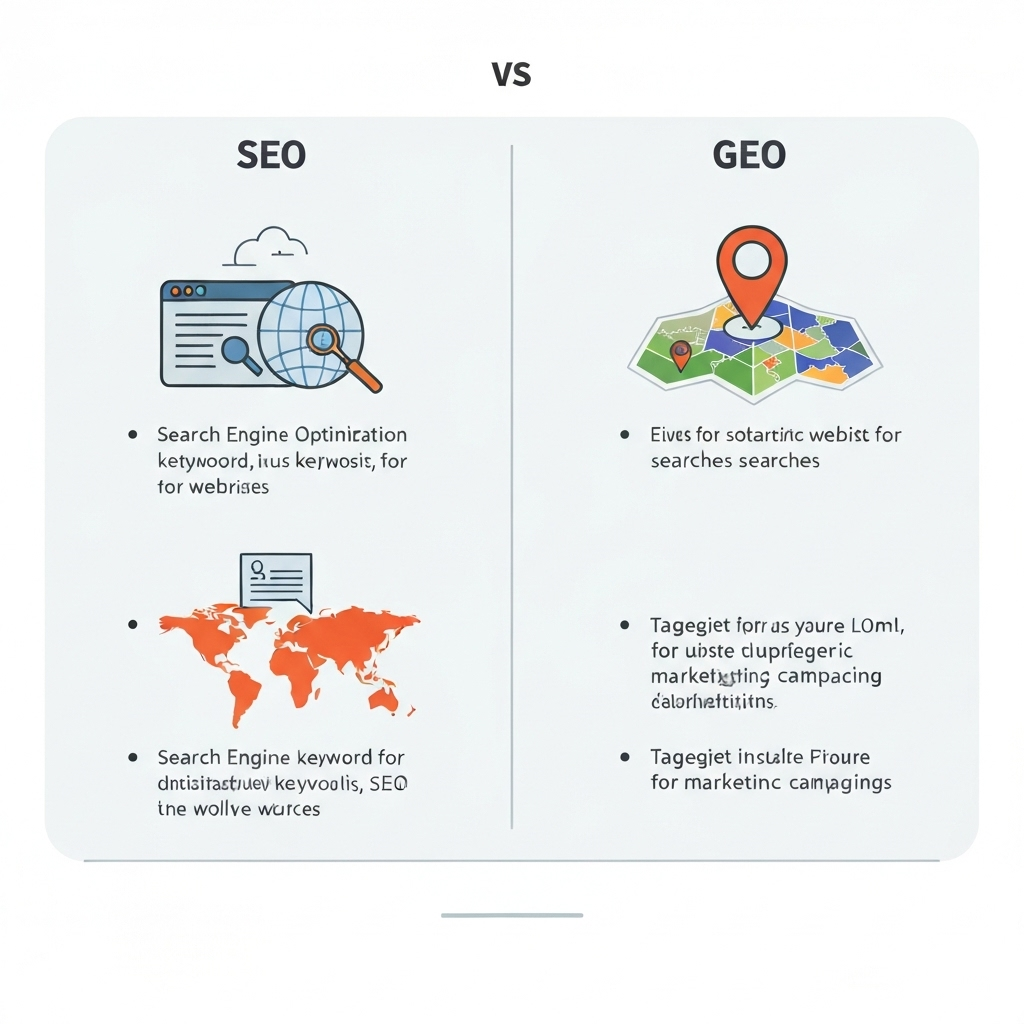What is GEO (Generative Engine Optimization)? Complete Definition and Guide 2025
Learn what GEO (Generative Engine Optimization) is, how it differs from SEO, and why it's essential for AI search visibility. Complete beginner's guide to understanding and implementing GEO strategies.
Dr. Emily Watson
AI Research Specialist and GEO pioneer. Ph.D. in Computer Science with expertise in machine learning and natural language processing.

What is GEO (Generative Engine Optimization)? Complete Definition and Guide 2025
Introduction: Understanding GEO in Simple Terms
What is GEO? GEO stands for Generative Engine Optimization - the practice of optimizing your content to be discovered, cited, and referenced by AI systems like ChatGPT, Claude, Perplexity, and other generative AI platforms. Think of it as SEO for AI search engines.
While traditional SEO helps you rank in Google search results, GEO helps you get mentioned and cited when people ask AI systems questions related to your expertise. This comprehensive guide explains everything you need to know about GEO.
What is GEO? The Complete Definition
Generative Engine Optimization (GEO) is the strategic practice of optimizing digital content, websites, and online presence to increase visibility and citations within AI-generated responses from large language models and generative search engines.
Key Characteristics of GEO:
- AI-First Optimization: Content optimized for machine understanding and citation
- Authority-Based: Focus on expertise, credibility, and trustworthiness
- Citation-Driven: Success measured by AI mentions and references
- Cross-Platform: Optimization across multiple AI systems
- Context-Rich: Comprehensive, semantically complete content
How GEO Works: The Technical Side
The AI Citation Process
When someone asks an AI system a question:
- Query Processing: AI understands the user's intent
- Source Analysis: AI searches through its training data and real-time sources
- Content Evaluation: AI assesses source credibility and relevance
- Response Generation: AI synthesizes information and cites sources
- Attribution: AI provides links and references to original sources
What Makes Content "GEO-Friendly"
AI systems prefer content that is:
- Authoritative: Written by recognized experts
- Comprehensive: Covers topics thoroughly
- Well-Sourced: Includes proper citations and references
- Structured: Easy for AI to parse and understand
- Accurate: Factually correct and verifiable
Why GEO Matters in 2025
The Rise of AI Search
The statistics tell the story:
- ChatGPT processes 100+ million queries daily
- 65% of knowledge workers use AI for research
- 40% of Gen Z prefers AI chatbots over search engines
- Google's SGE integrates AI into traditional search
- Perplexity AI has grown 1000% year-over-year
Business Impact of GEO
Companies implementing GEO strategies see:
- 300-500% increase in qualified traffic from AI sources
- Higher brand authority recognition
- Improved thought leadership positioning
- Future-proof digital marketing strategy
- Competitive advantage in AI-driven discovery
GEO vs SEO: Understanding the Difference
Traditional SEO Focus:
- Target: Human users on search engines
- Goal: Higher rankings in search results
- Metrics: Traffic, rankings, click-through rates
- Strategy: Keywords, backlinks, technical optimization
GEO Focus:
- Target: AI systems and their users
- Goal: Citations in AI-generated responses
- Metrics: AI mentions, citation accuracy, authority recognition
- Strategy: Expertise, comprehensiveness, source attribution
How to Implement GEO: Getting Started
Step 1: Content Authority Building
- Establish subject matter expertise
- Create comprehensive, well-researched content
- Include proper source attribution
- Build author credibility and credentials
Step 2: Technical Optimization
- Create and optimize llms.txt file
- Implement structured data markup
- Optimize content structure for AI parsing
- Ensure fast, accessible website performance
Step 3: AI-Friendly Content Creation
- Write clear, factual content
- Include data points and statistics
- Address comprehensive topic coverage
- Use citation-friendly formatting
Step 4: Monitoring and Optimization
- Track AI citations and mentions
- Monitor brand recognition in AI responses
- Analyze citation context and accuracy
- Continuously refine and improve strategy
Tools for GEO Success
Essential GEO Tools:
- GeoSEO Platform: Comprehensive GEO analysis and tracking
- AI Citation Monitors: Track mentions across AI systems
- Content Optimization Tools: Improve content for AI consumption
- Structured Data Generators: Create proper markup for AI systems
Common GEO Mistakes to Avoid
- Shallow Content: Creating surface-level content without depth
- Poor Attribution: Missing or inadequate source citations
- Promotional Tone: Overly sales-focused content
- Technical Neglect: Ignoring structured data and llms.txt
- Single Platform Focus: Optimizing for only one AI system
The Future of GEO
Emerging Trends:
- Multi-modal AI: Voice, image, and video optimization
- Real-time AI: Dynamic content optimization
- Personalized AI: Customized response optimization
- Enterprise AI: B2B AI search optimization
Preparing for the Future:
- Stay updated with AI developments
- Invest in comprehensive content strategies
- Build technical optimization capabilities
- Establish cross-platform authority
Conclusion: GEO is the Future of Search Optimization
Understanding "What is GEO?" is just the beginning. Generative Engine Optimization represents a fundamental shift in how we approach online visibility and authority building. As AI systems become the primary way people discover information, GEO optimization becomes not just beneficial—it's essential.
Ready to start your GEO journey? Analyze your current AI visibility and get personalized GEO recommendations with GeoSEO's comprehensive platform. Discover your GEO potential at geoseo.live.

